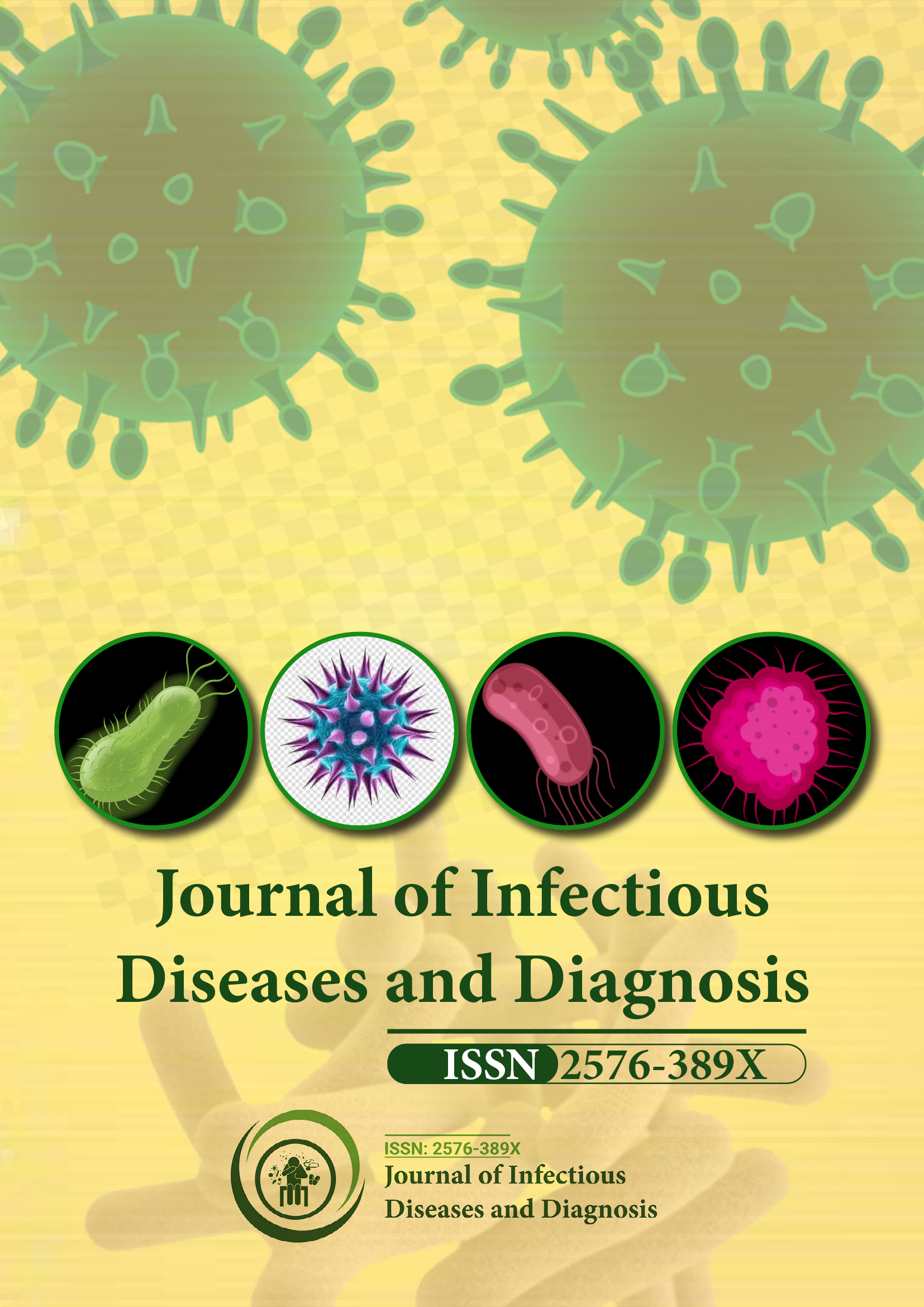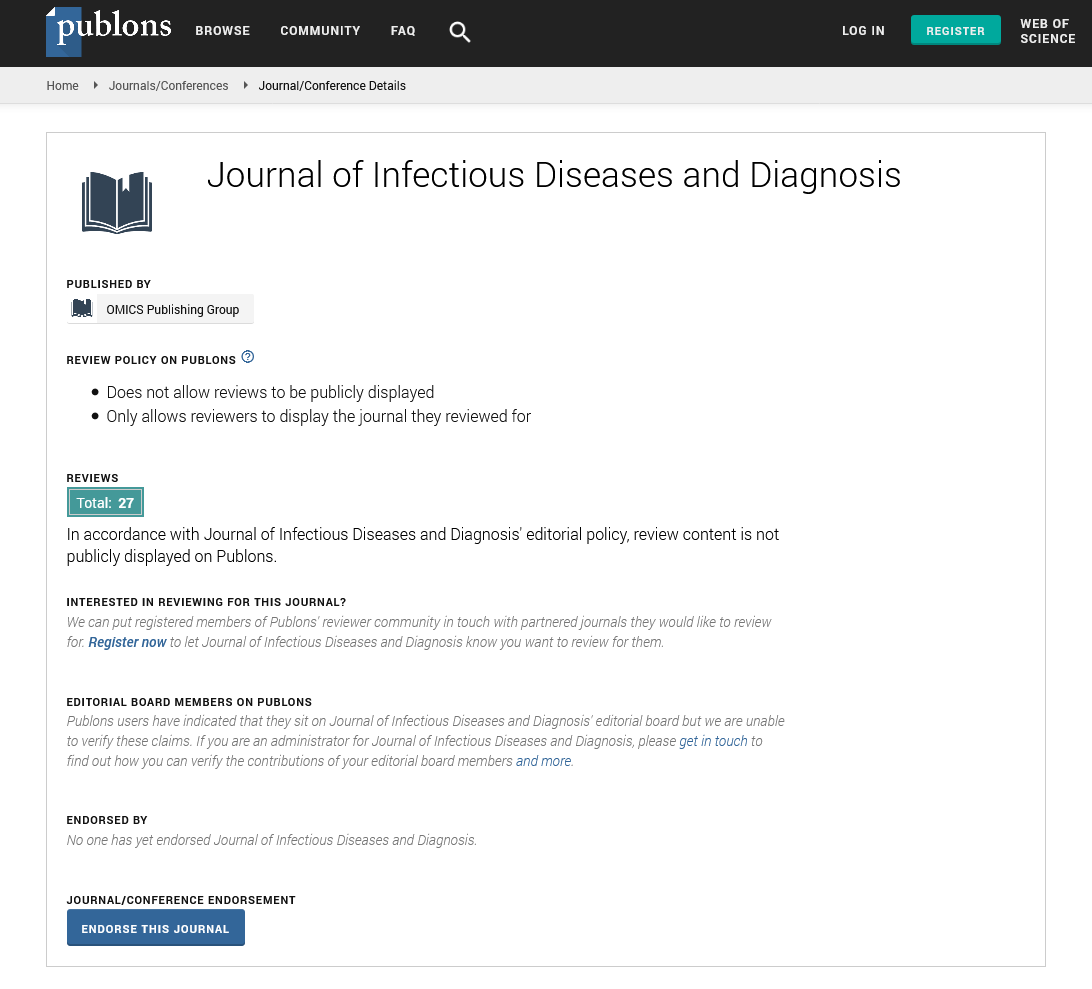Indexed In
- RefSeek
- Hamdard University
- EBSCO A-Z
- Publons
- Euro Pub
- Google Scholar
Useful Links
Share This Page
Journal Flyer

Open Access Journals
- Agri and Aquaculture
- Biochemistry
- Bioinformatics & Systems Biology
- Business & Management
- Chemistry
- Clinical Sciences
- Engineering
- Food & Nutrition
- General Science
- Genetics & Molecular Biology
- Immunology & Microbiology
- Medical Sciences
- Neuroscience & Psychology
- Nursing & Health Care
- Pharmaceutical Sciences
Commentary - (2023) Volume 8, Issue 5
Exploring Fluvastatin's Role in Reducing SARS-CoV-2 Infection: Implications for Pandemic Response
Jeremy Hensley*Received: 04-Sep-2023, Manuscript No. JIDD-23-23527; Editor assigned: 06-Sep-2023, Pre QC No. JIDD-23-23527 (PQ); Reviewed: 20-Sep-2023, QC No. JIDD-23-23527; Revised: 27-Sep-2023, Manuscript No. JIDD-23-23527 (R); Published: 04-Oct-2023, DOI: 10.35248/2576-389X.23.08.233
About the Study
The COVID-19 pandemic, caused by the Severe Acute Respiratory Syndrome Coronavirus 2 (SARS-CoV-2), has brought the world to constant, with widespread morbidity and mortality. Researchers worldwide have been actively exploring various therapeutic approaches to combat the virus and reduce its impact on human health. This study investigates the implications it holds for COVID-19 treatment, and the broader context of drug repurposing in the pandemic response.
In this study, researchers aimed to investigate the impact of Fluvastatin, a lipid-lowering drug primarily used to manage cholesterol levels, on SARS-CoV-2 infection in human lung cells. The study involved in vitro experiments using human lung epithelial cells infected with the virus and treated with Fluvastatin. The key findings of the study indicated that Fluvastatin treatment significantly reduced viral replication and the release of infectious viral particles in the lung cells. Additionally, the drug was found to modulate certain immune responses, potentially contributing to its antiviral effects.
The potential role of Fluvastatin in mitigating SARS-CoV-2 infection has several important implications for COVID-19 treatment and management. Firstly, it presents an intriguing example of drug repurposing, which is a cost-effective and time efficient strategy in the search for COVID-19 therapeutics. Fluvastatin has been available for decades, with a well-established safety profile for repurposing in the context of a global pandemic. The study's findings suggest that drugs already approved for other purposes could hold the key to effective COVID-19 treatment.
Secondly, the study highlights the importance of considering the host response in the fight against COVID-19. While much attention has been focused on directly targeting the virus, such as with vaccines and antiviral drugs, understanding how the host immune system interacts with the virus is significant. Fluvastatin appears to modulate immune responses in a way that limits the virus's ability to replicate and spread within lung cells. This underscores the complexity of the disease and the potential for host-directed therapies as a complementary approach to traditional antiviral treatments.
Thirdly, the findings facilitate for additional research into the mechanisms behind Fluvastatin's antiviral activities. Understanding the specific pathways and interactions involved can provide valuable insights into the development of more targeted therapies. It could also lead to the identification of biomarkers that help identify individuals who are most likely to benefit from Fluvastatin treatment.
While these findings are optimistic, and it is important to acknowledge that the study was conducted in vitro, and further research is needed to confirm the efficacy of Fluvastatin in clinical settings. The transition from lab experiments to human trials is a complex and rigorous process that requires careful consideration of safety, dosages, and potential side effects. Additionally, the study primarily focused on lung cells, so the effects of Fluvastatin on other tissues and organs affected by COVID-19 need to be explored.
The study on Fluvastatin's potential role in mitigating SARS-CoV- 2 infection fits into a broader context of drug repurposing in pandemic response. Drug repurposing involves identifying existing drugs that can be used for new therapeutic purposes, often bypassing the lengthy drug development pipeline. This approach has gained prominence during the COVID-19 pandemic as researchers urgently seek treatments.
One of the advantages of drug repurposing is the availability of safety and pharmacokinetic data for many existing drugs, which can expedite the evaluation process. This existing knowledge reduces the time and resources needed for clinical trials, making it an attractive option for addressing the immediate needs of a global health crisis.
However, drug repurposing is not without its challenges. The suitability of a drug for a new indication may depend on complex factors, including the drug's mechanism of action, its pharmacokinetics, and the disease's pathophysiology. In the case of COVID-19, repurposing efforts have yielded both successes and disappointments, highlighting the need for careful evaluation of each drug's potential.
Furthermore, while repurposed drugs could lead to an easier way to treatment, they should not replace the development of novel therapeutics modifies specifically for the virus. The ongoing research on vaccines and direct-acting antiviral drugs remains essential for long-term pandemic control.
Conclusion
The study on Fluvastatin's potential to mitigate SARS-CoV-2 infection in human lung cells is a noteworthy contribution to the ongoing efforts to combat the COVID-19 pandemic. It demonstrates the value of drug repurposing as a rapid and costeffective strategy in the search for treatments. Moreover, it underscores the complexity of COVID-19 and the importance of considering host-directed therapies in addition to traditional antiviral approaches.
While these findings are optimistic, they should be viewed as preliminary, and further research, including clinical trials, is needed to determine the safety and efficacy of Fluvastatin as a COVID-19 treatment. Nevertheless, the study provides a valuable foundation for future investigations into the potential of Fluvastatin and other existing drugs in the fight against COVID-19 and highlights the importance of a multifaceted approach to pandemic response that includes both repurposed and newly developed therapeutics.
Citation: Hensley J (2023) Exploring Fluvastatin's Role in Reducing SARS-CoV-2 Infection: Implications for Pandemic Response. J Infect Dis Diagn. 8:233.
Copyright: © 2023 Hensley J. This is an open-access article distributed under the terms of the Creative Commons Attribution License, which permits unrestricted use, distribution, and reproduction in any medium, provided the original author and source are credited.

